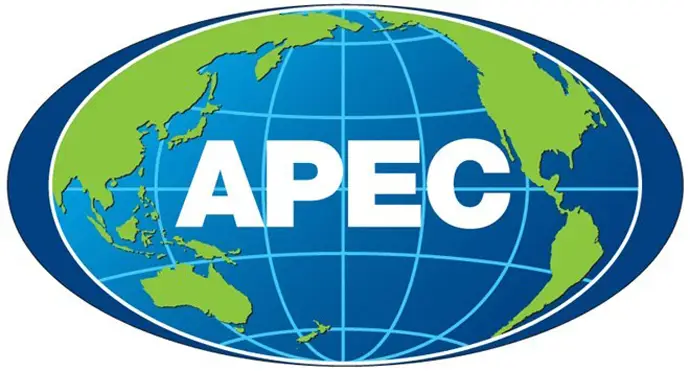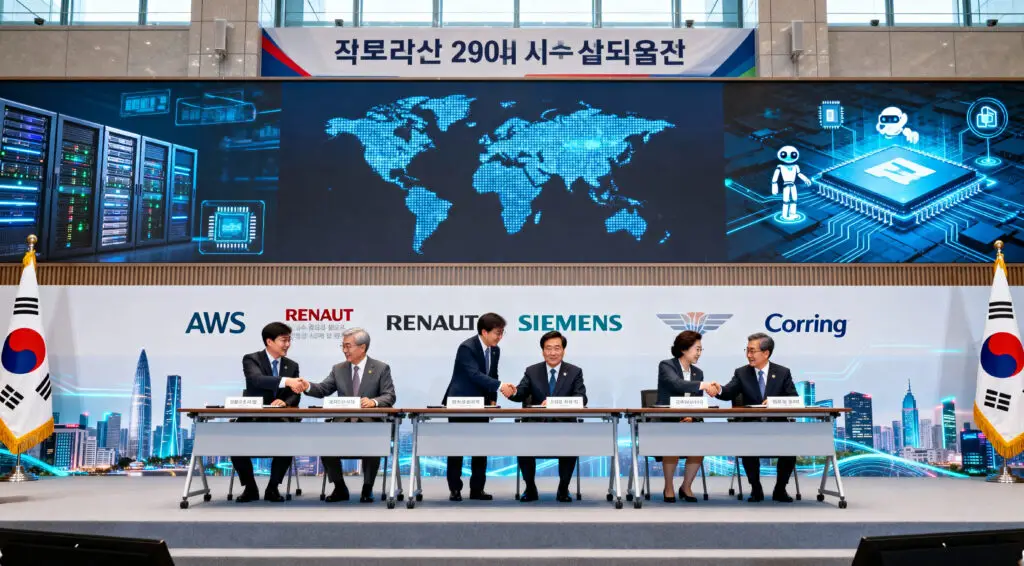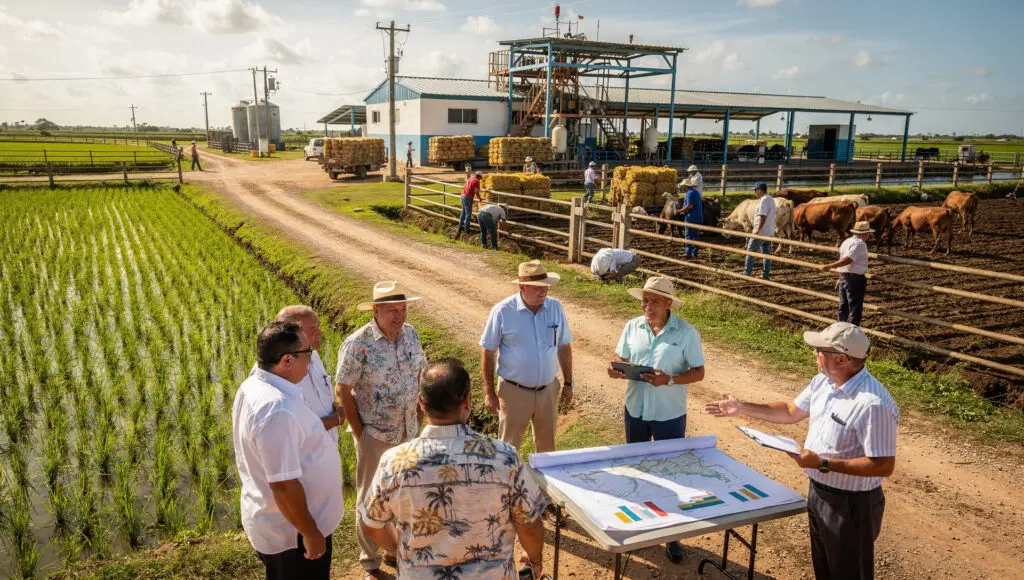Global Tech Giants Commit Billions to Korea’s Digital Transformation
During the APEC Global Investment Partnership event in Gyeongju, South Korea, it was said that $9 billion in new foreign investments will be made. The promises are among the biggest foreign direct investment milestones in the country’s recent economic history.
Seven international companies, including Amazon Web Services (AWS), promised to make long-term investments in AI research, cloud infrastructure, and high-tech manufacturing. The project shows how Seoul is becoming more important as a center for digital innovation and green technologies in the area.

Source: DTI
AWS Leads With $5B Plan to Expand Cloud and AI Infrastructure
Matt Garman, the CEO of AWS, said that the company plans to spend $5 billion to improve its cloud and AI capabilities by 2031. The money will help Korea’s data centers grow and speed up the country’s entry into the global AI industry.
Garman commended Korea’s quick rise to become Asia’s center for AI innovation. He stressed that the project will strengthen AWS’s ties with Korean businesses and provide local developers more leverage through scalable cloud technologies.
Presidential Support Reinforces Korea’s AI Development Strategy
The investment was a big part of Korea’s long-term AI plan, according to President Lee Jae Myung. He talked about how important it is for Korea to have collaborations that improve its digital infrastructure during a discussion with Garman.
The news comes after AWS’s $4 billion AI data center project in Ulsan, which shows that people still believe in Korea’s technological promise. President Lee called the partnership a “bridge to shared prosperity” and said it will be a big part of AI-led growth.
Recommended Article: Chrome for Android Rolls Out Material 3 Expressive Redesign
Multinational Partners Join Efforts to Strengthen Korea’s Industry
Renault, Amkor Technology, Corning, Air Liquide, Siemens Healthineers, and Umicore also announced big investments. The goals of each company’s commitment are important areas that fit with Korea’s plan to modernize its economy.
Renault will improve its local production lines for making electric vehicles, making Korea one of its five worldwide strategic hubs. Siemens Healthineers wants to build a 9,917-square-meter factory in Pohang to make parts for cardiovascular ultrasound machines.
Expanding Korea’s Semiconductor and Battery Ecosystems
Amkor Technology will increase its semiconductor packaging business to help the region’s electronics exports flourish. Corning and Air Liquide will grow the supply chains for materials that are very important for making chips and sophisticated optics.
Umicore wants to build a cathode materials facility in Korea to help the country stay at the top of next-generation battery technology. These efforts all help Korea’s position in the global clean energy and semiconductor value chains.
Immediate Capital Inflows Strengthen Economic Outlook
The Ministry of Trade, Industry, and Energy said that about $660 million of the promised investment would be included as direct capital intake. The ministry thinks that the rest will happen during the following few years.
Officials said that these initiatives will create thousands of high-paying jobs and make Korea’s industries more competitive. The agreements also show that overseas investors are becoming more sure of Korea’s economic strength.
Korea Proposes Inclusive AI Vision at APEC CEO Summit
President Lee spoke at the APEC CEO Summit and talked about an “AI for All” effort that will encourage the development of ethical and inclusive AI. The strategy urges countries in the Asia-Pacific region to work together to make sure that everyone gets a fair share of the advantages of technology.
The topic of the summit was “Bridge, Business, Beyond.” It drew 1,700 world leaders, such as Donald Trump and NVIDIA CEO Jensen Huang. Samsung, Hyundai, and SK Group all took part in the event, which showed how important Korea is to the region’s technological future.























